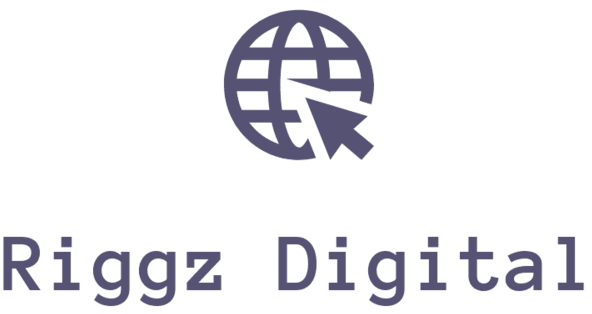Facebook advertising is a powerful tool, but ethical missteps can quickly damage a brand’s reputation and trust. With billions of users scrolling daily, advertisers must balance persuasive marketing with responsible practices.
Failing to follow ethical guidelines can lead to ad disapprovals, audience backlash, and even legal consequences. Understanding the do’s and don’ts of ethical Facebook advertising ensures campaigns remain transparent, fair, and respectful of user privacy.
This guide breaks down key ethical principles, helping businesses create ads that engage audiences without misleading, exploiting, or violating policies.
Table of Contents
Understanding Facebook’s Ad Policies
Diving into Facebook advertising? It’s crucial to grasp the platform’s ad policies to ensure your campaigns are both effective and ethical. Let’s break down the essentials in a light-hearted, reader-friendly manner.
The Foundation: Meta Advertising Standards
Facebook, now under the Meta umbrella, has established comprehensive Advertising Standards to guide advertisers. These standards ensure that ads are safe, respectful, and compliant with community expectations. Key areas include:
- Prohibited Content: Ads must not promote illegal products, discrimination, or misleading information.
- Restricted Content: Certain topics, like alcohol or gambling, have age and country-specific restrictions.
- Video Ads: Guidelines ensure video content is appropriate and non-disruptive.
- Targeting: Advertisers should avoid discriminatory practices in audience selection.
For a detailed overview, visit Meta’s Advertising Standards.Transparency
Why Compliance Matters
Adhering to these policies isn’t just about avoiding penalties; it’s about fostering trust with your audience. Ethical advertising practices lead to:
- Enhanced Brand Reputation: Consumers value honesty and are more likely to engage with transparent brands.
- Improved Ad Performance: Compliant ads face fewer restrictions, leading to better reach and engagement.
- Avoiding Penalties: Non-compliance can result in ad disapproval or account suspension.
Common Pitfalls to Avoid
To keep your campaigns running smoothly, steer clear of these common mistakes:
- Misleading Claims: Ensure all product or service descriptions are accurate.
- Inappropriate Content: Avoid using sensational or violent imagery to grab attention.
- Improper Targeting: Don’t exclude audiences based on sensitive characteristics like race or religion.
Staying Updated
Facebook’s policies can evolve. To stay informed:
- Regularly Review Guidelines: Make it a habit to check for updates on Meta’s Advertising Standards page.
- Engage in Continuous Learning: Participate in webinars or courses on ethical advertising practices.
Understanding and adhering to Facebook’s ad policies is essential for ethical advertising. By following these guidelines, you not only comply with platform standards but also build trust with your audience, leading to more successful campaigns.
Avoiding Misleading Claims
Avoiding misleading claims in your Facebook ads is crucial for maintaining trust and adhering to ethical considerations in Facebook advertising. Let’s explore how to keep your advertising both honest and effective.
The Importance of Truthful Advertising
Misleading claims can damage your brand’s reputation and lead to penalties. For instance, Volkswagen faced significant backlash for falsely advertising certain vehicles as environmentally friendly. Publift
Common Misleading Practices to Avoid
To ensure your ads are ethical and compliant:
- Exaggerated Benefits: Avoid promising unrealistic results that your product can’t deliver.
- Hidden Terms: Clearly disclose any conditions or limitations associated with your offer.
- Before-and-After Photos: Ensure any comparative images are genuine and not manipulated.
Facebook’s Stance on Misleading Ads
Facebook prohibits ads that include deceptive or misleading practices. According to their Advertising Standards, ads must not promote products or services using deceptive practices.
Consequences of Misleading Advertising
Engaging in deceptive advertising can lead to:
| Consequence | Description |
| Ad Disapproval | Facebook may reject your ad submissions. |
| Account Suspension | Repeated violations can result in losing advertising privileges. |
| Legal Repercussion | Brands like L’Oréal have faced legal action for misleading claims.Publift |
Tips for Ethical Advertising
To keep your ads honest and effective:
- Provide Evidence: Back up claims with data or testimonials.
- Be Transparent: Clearly state any limitations or conditions.
- Regular Reviews: Periodically audit your ads for compliance.
Targeting Without Discrimination
Ensuring your Facebook ads reach the right audience without crossing ethical lines is crucial. Let’s explore how to achieve effective targeting without discrimination.
Understanding Ethical Targeting
Ethical targeting involves directing your ads to relevant audiences without excluding or exploiting specific groups. This practice aligns with ethical considerations in Facebook advertising, fostering inclusivity and fairness.
Facebook’s Anti-Discrimination Policies
Facebook’s Advertising Standards prohibit discriminatory practices. Key guidelines include:
- Prohibited Content: Ads must not discriminate based on personal attributes such as race, ethnicity, or sexual orientation.
Transparency - Audience Selection: Advertisers should not use targeting options to wrongfully include or exclude specific groups.
Transparency
Consequences of Discriminatory Targeting
Engaging in discriminatory targeting can lead to:
| Consequence | Description |
| Ad Rejection | Non-compliant ads may be disapproved. |
| Account Suspension | Repeated violations can result in losing advertising privileges. |
| Legal Actions | Discriminatory practices can lead to lawsuits and financial penalties. |
Best Practices for Inclusive Targeting
To ensure your targeting is ethical and inclusive:
- Focus on Interests and Behaviors: Target users based on their interests and online behaviors, not personal attributes.
- Regularly Review Ad Performance: Monitor your ads to ensure they reach diverse audiences without unintended biases.
- Stay Informed: Keep up-to-date with Facebook’s advertising policies to ensure compliance.
Log in or sign up to view
The Role of Algorithms in Ad Delivery
Facebook’s ad delivery system can inadvertently lead to biased outcomes. Studies have shown that the platform’s algorithms may favor certain demographics over others, even without explicit targeting choices by advertisers.mNortheastern Global News
Targeting without discrimination is not just a legal obligation but also an ethical imperative. By following best practices and staying informed, you can create inclusive campaigns that resonate with a diverse audience.
Balancing Retargeting and Privacy
Retargeting can feel like a double-edged sword. On one side, it helps businesses reconnect with potential customers. On the other, it raises privacy concerns among users. Balancing these aspects is crucial for ethical considerations in Facebook advertising.
Understanding Retargeting
Retargeting involves showing ads to users who have previously interacted with your website or content. This strategy aims to re-engage potential customers and encourage conversions.
Benefits of Retargeting:
- Increased Conversion Rates: Reminding interested users about your products can boost sales.
- Brand Recall: Keeps your brand fresh in the minds of potential customers.
- Cost-Effective: Targets users already familiar with your brand, often leading to higher ROI.
Privacy Concerns in Retargeting
While retargeting is effective, it raises privacy issues that advertisers must address.
Key Privacy Concerns:
- Data Collection: Gathering user data without consent can lead to trust issues.
- Ad Fatigue: Overexposure to retargeted ads can annoy users.
- Transparency: Users may feel uneasy if unaware of how their data is used.
Best Practices for Ethical Retargeting
To balance retargeting and privacy effectively:
- Obtain Consent: Ensure users agree to data collection for retargeting purposes.
- Frequency Capping: Limit the number of times a user sees your retargeted ads.
- Clear Privacy Policies: Provide accessible information on data usage.
Legal Frameworks and Compliance
Adhering to legal standards is essential for ethical advertising.
Important Regulations:
- GDPR: Requires explicit user consent for data collection in the EU.
- CCPA: Gives California residents rights over their personal data.
Compliance Tips:
- Regular Audits: Review data practices to ensure compliance.
- User Controls: Allow users to manage their ad preferences.
Building Trust Through Ethical Retargeting
Ethical retargeting fosters trust and strengthens customer relationships.
Strategies to Build Trust:
- Transparency: Be open about data collection and usage.
- User Empowerment: Provide options to opt-out of retargeting.
- Relevant Content: Ensure retargeted ads are useful and non-intrusive.
Transparency in Sponsored Content
Transparency in sponsored content is essential for maintaining trust and credibility in Facebook advertising. By being open about partnerships and promotions, you not only
comply with ethical standards but also foster a genuine connection with your audience.
Why Transparency Matters
When users know that content is sponsored, they can make informed decisions. This openness prevents feelings of deception and enhances trust.
Benefits of Transparency:
- Builds Trust: Honesty about sponsorships fosters a trustworthy relationship with your audience.
- Enhances Credibility: Transparent practices position your brand as credible and reliable.
- Ensures Compliance: Adhering to disclosure guidelines keeps you on the right side of regulations.
Best Practices for Transparent Sponsored Content
Implementing clear and straightforward strategies ensures your sponsored content is both ethical and effective.
Key Practices:
- Clear Disclosures: Use labels like “Sponsored” or “Ad” prominently in your posts.
- Consistent Messaging: Maintain honesty in your content to align with your brand’s values.
- Educate Partners: Ensure influencers and partners understand and follow disclosure guidelines.
Tools and Resources for Ensuring Transparency
Utilizing available tools can help maintain transparency in your sponsored content.
Helpful Tools:
- Facebook’s Branded Content Tool: Allows tagging of business partners in posts.
- FTC Guidelines: Provides clear instructions on disclosure requirements.
- Third-Party Monitoring Services: Helps track compliance and performance of sponsored content
Conclusion
Ethical considerations in Facebook advertising are not just about following rules—they shape how your audience perceives and trusts your brand. By being transparent, avoiding misleading claims, and respecting privacy, you create ads that resonate and build long-term loyalty. An ethical approach ensures compliance while fostering genuine connections that drive success.

